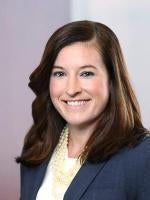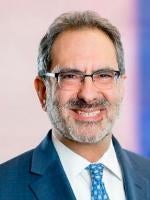Last month, the U.S. District Court for the District of Utah joined the AseraCare court and others in finding that a relator cannot successfully allege violations of the False Claims Act (“FCA”) based on a purported lack of medical necessity unless there is an objective standard articulated by Medicare. In fact, District Judge Jill Parrish cited the AseraCare case and many federal appellate decisions when granting dismissal – with prejudice – in United States ex rel. Polukoff v. St. Mark’s et al., No. 16-cv-00304 (D. Utah 2017).
The relator in this case, Dr. Gerald Polukoff, was a colleague of Dr. Sherman Sorensen, whom he alleged performed medically unnecessary procedures, which were then fraudulently billed to federal health care programs. In addition to Dr. Sorensen, the relator also named as defendants two hospitals where Dr. Sorensen performed these procedures. The procedures at issue were patent foramen ovale (“PFO”) closures. The foramen ovale is a small opening in the wall separating the upper two chambers of the heart found in fetuses as they develop in the womb. This opening closes soon after birth for a majority of the population. For those people in whom the opening does not close, the condition is typically asymptomatic but can lead to an increased risk of stroke from blood clots that normally would have lodged in the lungs, but instead are able to travel to the brain due to the opening. Dr. Sorensen performed PFO closures to prevent strokes in patients who had an elevated risk of stroke.
While guidelines issued by medical societies and private insurers varied over the years regarding the propriety of performing PFO closures in order to prevent strokes, the Medicare program never issued a National Coverage Determination (“NCD”) to set forth the circumstances under which such procedures would be considered “reasonable and necessary” for purposes of Medicare coverage.
One of the hospitals at which Dr. Sorensen had privileges (and which the relator named as a defendant) did, however, establish a policy in March 2011 stating that PFO closures may be considered for “patients with a single well-documented significant stroke or systemic emboli in a high risk patient who has been comprehensively evaluated for alternative cause of embolic stroke.” These guidelines also required an independent neurology consult or other tests to confirm either the occurrence of a stroke or an embolism before performing a PFO closure. They also stated that a PFO closure may only be performed to treat migraines in a clinical trial setting. The hospital first temporarily, and later permanently, suspended Dr. Sorensen’s medical privileges because he did not follow the hospital’s policy on PFO closures. Dr. Sorensen continued to perform PFO closures at the second hospital named as a defendant in the complaint, until he retired.
The relator alleged that because Dr. Sorensen performed medically unnecessary PFO procedures and billed those procedures to federal health care programs, he and the hospitals where he performed these procedures (who billed related facility charges to federal health care programs) had violated the FCA. The defendants moved to dismiss the relator’s complaint on several grounds, including failure to meet Rule 9(b)’s heightened pleading requirements and failure to state a claim under Rule 12(b)(6).
The court found that although the relator satisfied Rule 9(b)’s requirements as to claims against the doctor and one hospital, his FCA claims failed as a matter of law because he had failed to show that the defendants “knowingly made an objectively false representation to the government that caused the government to remit payment” (emphasis added) for the PFO closures. The court noted that the crux of the relator’s case was that the “defendants represented to the government that the PFO closures performed by Dr. Sorensen were medically reasonable and necessary and that this representation was objectively false.” However, the court found that such representations could not be proven to be “objectively false” because “opinions, medical judgments, and ‘conclusions about which reasonable minds may differ cannot be false’” for purposes of an FCA claim.
The court also rejected the relator’s attempt to rely on medical society guidelines and recommendations as proof that the procedures Dr. Sorensen performed were not medically necessary, noting that the Medicare program does not require compliance with an industry standard as a prerequisite to payment and that requesting payment for procedures that allegedly did not comply with a particular standard of care does not amount to a fraudulent scheme actionable under the FCA. Where, as here, the Medicare program had not established an objective standard for the circumstances under which it would pay for a PFO closure (i.e., through an NCD), the court refused to apply the FCA to claims where the relator’s claims were based on the “subjective and ambiguous ‘reasonable and necessary’” standard and relied upon “evidence of medical opinions and subjective standards of care rather than on objectively false representations.”
Finally, the court rejected the relator’s request for leave to amend, finding that amendment would be futile because the “fundamental legal defect [of the complaint was] that it [did] not identify an objectively false representation made by any of the defendants.”
The timing of this decision is interesting not only because the legal and medical communities have been closely following the issue of medical necessity in FCA cases, but also because the newly confirmed Secretary of HHS, Tom Price, recently commented that CMS should focus less on the issue of medical necessity and more on ferreting out true fraud, potentially signaling a change in enforcement priorities going forward.





 />i
/>i

